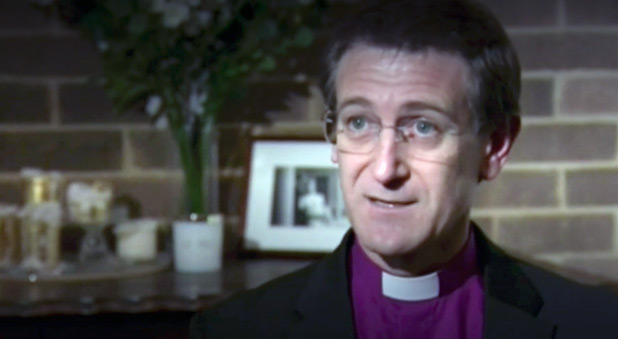Archbishop Glenn Davies and the chair of the Religious Freedom Reference Committee, Bishop Michael Stead, have been pushing for assurances on religious freedom as the election campaign enters its final stages.
Concern about the issue has been heightened by the actions of Rugby Australia in sacking star player Israel Folau for a Christian message on Instagram.
Bishop Stead first raised concern soon after the controversy began when he told The Australian newspaper last month "If a rugby player can be sacked by doing nothing more than posting on his social media page what is essentially a summary of the Bible then it’s a signal to the rest of us that we better keep our mouths shut."
Bishop Stead, who has taken a leading role in the debate over religious freedom, said Australians should have the right to have religious conversations without fear of a backlash. “It’s time for our leaders to pass legislation to protect religious debate and provide a space for respectful conversation,” he said.
Since Rugby Australia ruled that Folau had committed 'a high-level breach' of its code of conduct, Archbishop Davies, from overseas, sent a message of support on twitter 'I stand with Israel Folau'.

Bishop Stead and other church leaders have pressed both the Prime Minister and Opposition leader for a commitment to religious freedom. He told SBS on Saturday that he was frustrated that they characterised the dispute between Folau and Rugby Australia during Wednesday’s leaders debate as a contractual matter, rather than one of freedom of speech, conscience and belief.
“The problem with that is that there does need to be a positive protection for free speech so people can genuinely say what they believe without being gagged by oppressive codes of conduct because employers will then have licence to restrict religious speech in a workplace context for fear of offence,” Dr Stead said. “In effect, people will be told to leave your religious self at home when you come to work.”
Later, both the Prime Minister and Mr Shorten commented on the issue of religious freedom.
Mr Morrison repeated a commitment to legislate to protect religious freedom in the same way as sex discrimination, through a Religious Discrimination Act, if the coalition is returned to office.
Mr Shorten didn't specify how religious freedom would be protected, saying Labor Government would "maintain religious education and freedom of religion and we believe in freedom of speech, but we also believe that we can't be a nation who allows one group to inflict hurt on another group."
In response, Bishop Stead said “These comments by the Leader of the Opposition seem to indicate that Labor will introduce new laws to limit religious free speech where it “inflicts hurt”. Of course, as Christians, we never want to cause injury to others; neither by our words or by our actions. But my concern is that these kinds of laws merely encourage others to “play the victim card”, and use imaginary or exaggerated hurts to shut down the speech of those with whom they disagree. This is exactly what happened in the case of Archbishop Porteous in Hobart. We already have laws in Australia that prevent “hate speech” – as we should have – which fulfil our obligations under ICCPR article 20 to have laws that prohibit speech that incites others to hatred or violence.
But Australians should be very concerned about any laws which prohibit speech on the basis of a claim that 'you hurt my feelings'. If it becomes an offence to cause offence, Christians have a problem, because like the Apostle Paul, we must not shy away from preaching the 'offence of the cross' (Gal 5:11)" Bishop Stead said.
On Wednesday, a poll was released showing Australians strongly support the need for legal protections for freedoms of thought, conscience and belief (including religious belief) and that support has risen sharply in the last two years.
75% of those surveyed agreed that freedom of thought, conscience and belief in public through speech, practice and teaching needed to be protected. Only 5% disagreed and 20% were undecided. Support rose from 62% who agreed to a similar question in a Newspoll before the same-sex marriage plebiscite.
Support was strong across the supporters of the major parties, with only 6 per cent of ALP voters and 3 per cent of coalition voters disagreeing that such freedoms should be protected.
The YouGov Galaxy opinion survey, published on the website of the Institute for Civil Society,
The poll also indicated majority to strong support for faith-based schools to have freedom to continue to maintain their identity in their teaching, by employing staff who share their beliefs and by otherwise setting standards of conduct consistent with their religious ethos (58% support, 16% against, 26% undecided), and for the freedom of people to express and practise and teach their children their conscientious and religious beliefs without penalties or adverse action, including on issues where opinions differ such as man-woman marriage, sexual activity and gender fluidity (support ranging from 54% to 75%).
Photo: Dr Stead talking to SBS News






















